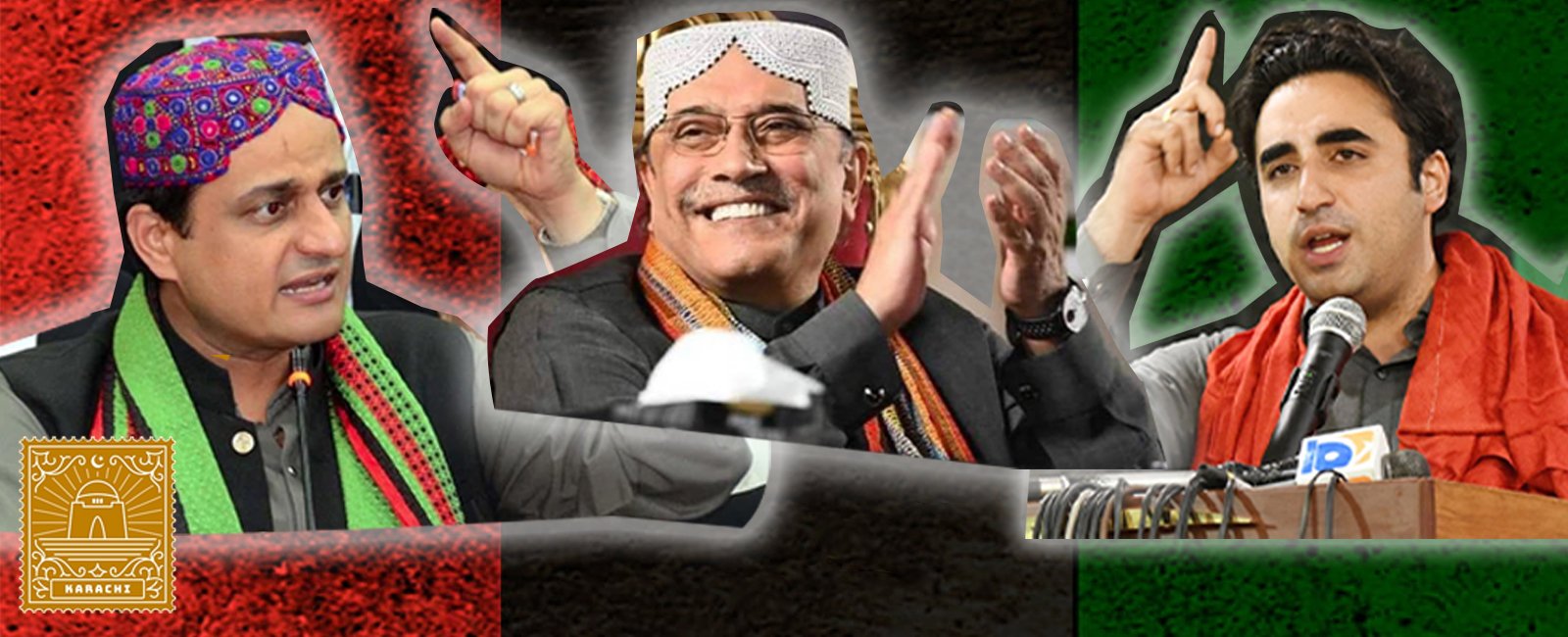Karachi mayorship: a crown of thorns for Murtaza Wahab?
Karachi's newly-elected mayor seems to have put on the crown of thorns amid allegations of pre-poll rigging and faces a post-poll legal battle ahead

The brief political career of Murtaza Wahab, the son of my university fellows — late Wahab Siddiqui and late Fouzia Wahab— has always been turbulent and now as the mayor-elect of Karachi, country’s biggest city, he is bracing for may be the bumpiest ride of his life given the political complexities of the metropolis.
He seems to have put on this crown of thorns amid allegations of pre-poll rigging and faces a post-poll legal battle ahead. Besides, he has to get himself elected as union council (UC) chairman under the amended law within six months of getting elected as the ‘city’s father.’
Murtaza and Salman Abdullah Murad secured 173 votes each as mayor and deputy mayor, respectively, against Jamaat-e-Islami (JI) Sindh chief Hafiz Naeem ur Rehman and district president Saifuddin Saif, who secured 160, while 31 UC chairmen of Pakistan Tehreek-e-Insaf (PTI) who reportedly had formed a ‘forward-bloc’ did not turn up for vote.
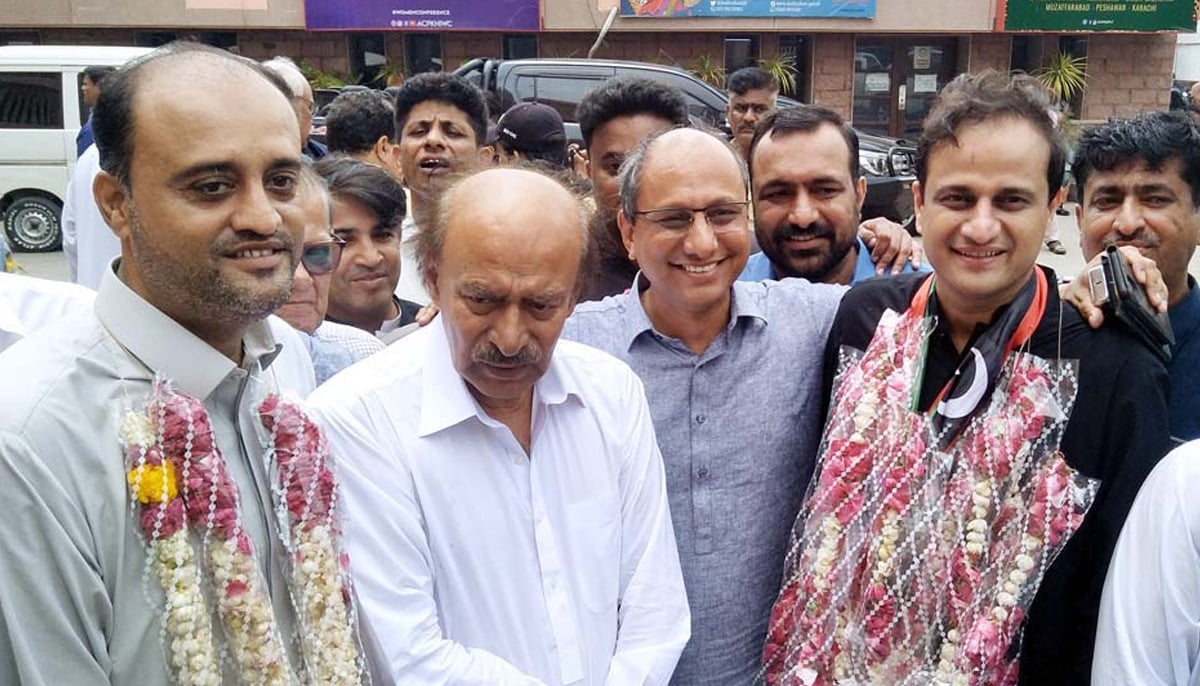
The dramatic turnaround was followed by JI allegations that Pakistan People's Party (PPP) and Sindh administration used muscle power and money to ensure victory for their candidates, which the PPP leaders including Murtaza rejected.
The detailed judgment of the Sindh High Court (SHC) on the petition filed by JI added to the challenge Murtaza first has to cope with before confronting others which this city has been facing for decades like non-availability of clean water, clogged drainage system, encroachment, deteriorating law and order situation and massive corruption in all departments particularly those under Karachi Metropolitan Corporation (KMC) or mayor.
SHC, which had earlier rejected JI's plea for an injunction against holding mayoral and deputy mayoral elections in its detailed order, linked the election results with the disposal of the appeal. In case an appeal is accepted by the court it can call for re-election of mayor and deputy mayor under the old law.
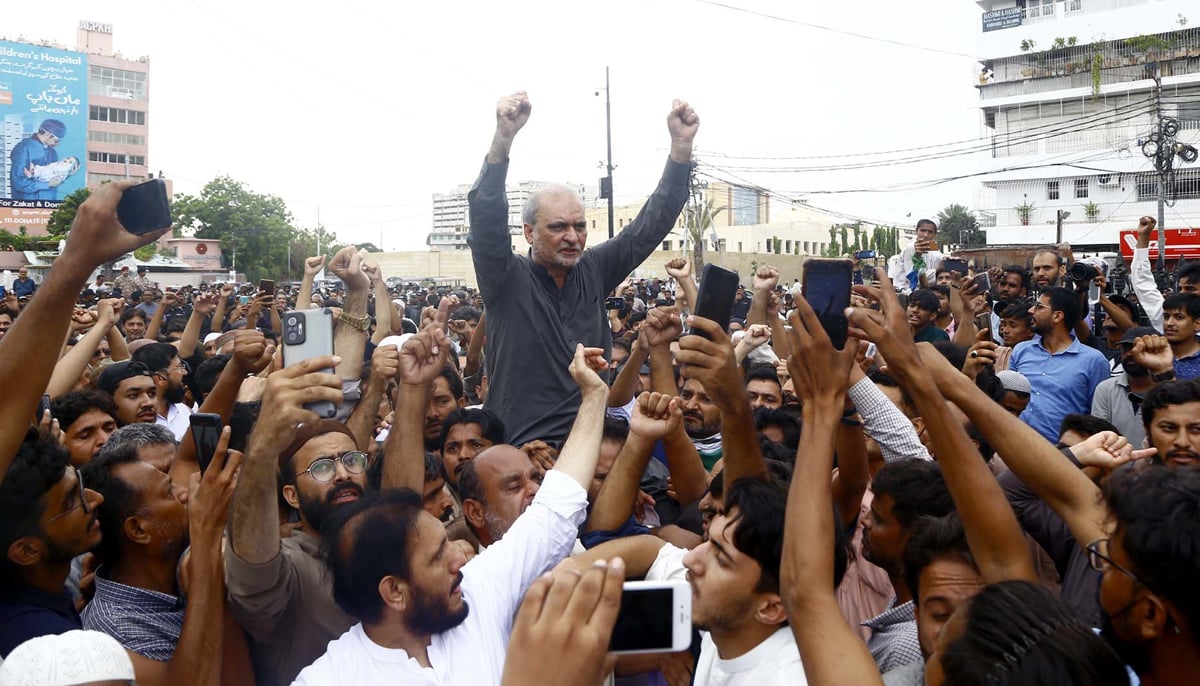
The JI has challenged the amendment in the Sindh Local Government Act, 2013, which allowed an unelected person to be nominated for mayor and deputy mayor, the move which paved the way for Murtaza’s nomination.
Murtaza should consider himself lucky in many ways as compared to many party-old guards. Since his entry into the political arena in 2015, he acquired many positions like adviser to the chief minister, senator, Karachi administrator, special assistant with different portfolios and now a special amendment which led to his nomination as a mayor, of Karachi.
Otherwise, a very soft-spoken, well-educated, well-mannered Murtaza should also consider himself unlucky that he never had an easy ride. In 2016, the Sindh High Court declared his appointment as adviser "illegal", but the PPP leadership backed him and he was nominated as senator for a brief period.
When the local bodies elections were held Murtaza was advised by many of his party colleagues who had an experience in local politics to contest from one of the safe UCs but for one reason or the other, he avoided and kept himself out.
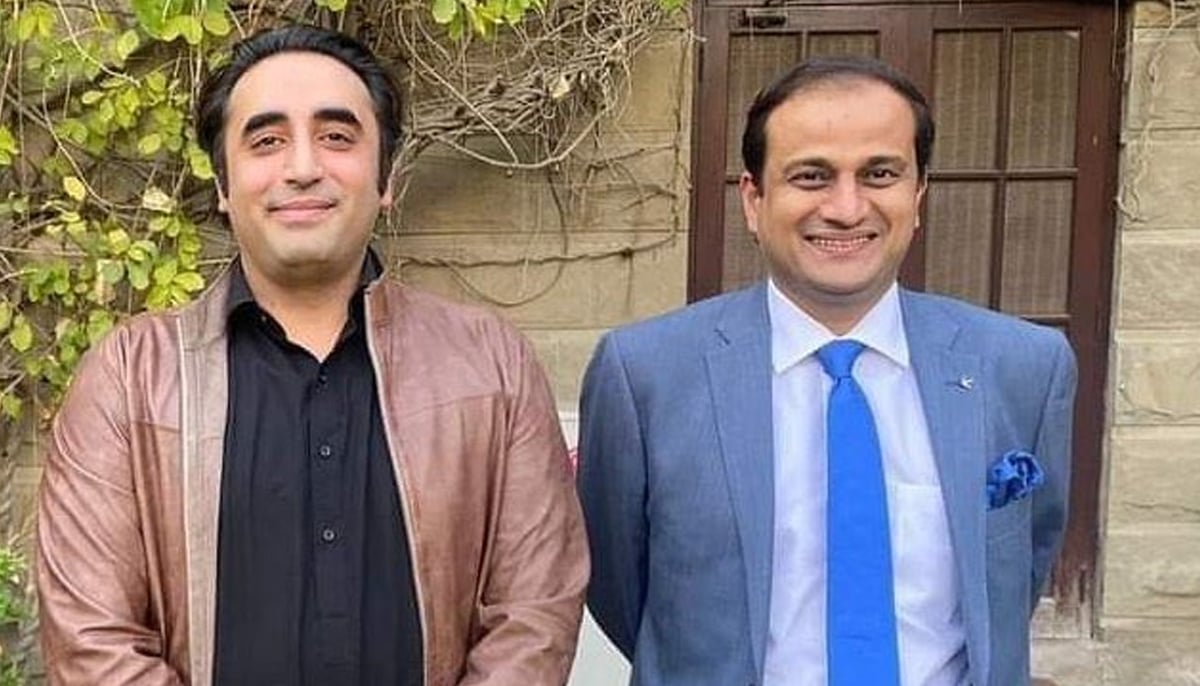
PPP surprised many when it emerged as the single largest party in a House of 267 of those directly elected as UC chairmen followed by JI and PTI — none of the three parties secured enough seats to get a simple majority of 184.
The political dynamics of Sindh with a history of the rural-urban divide are far more different than other provinces. PPP for the first time has a chance to minimise, if not completely remove, the myth that the party ignored urban Sindh and wanted to keep the ethnic divide.
Can they do it depends on how the mayor-elect from cities like Sukkur, Mirpurkhas, Hyderabad and Karachi performed. Murtaza being the mayor-elect of the largest city has to lead from the front.
Urban Sindh, in general, and Karachi had given mandate to different parties both in the National and provincial assembly as well as in the local bodies. But, PPP always remains a strong stakeholder in all three tiers; even though it is for the first time it got its mayor elected from Hyderabad and in Karachi despite reservations and allegations in the city polls.
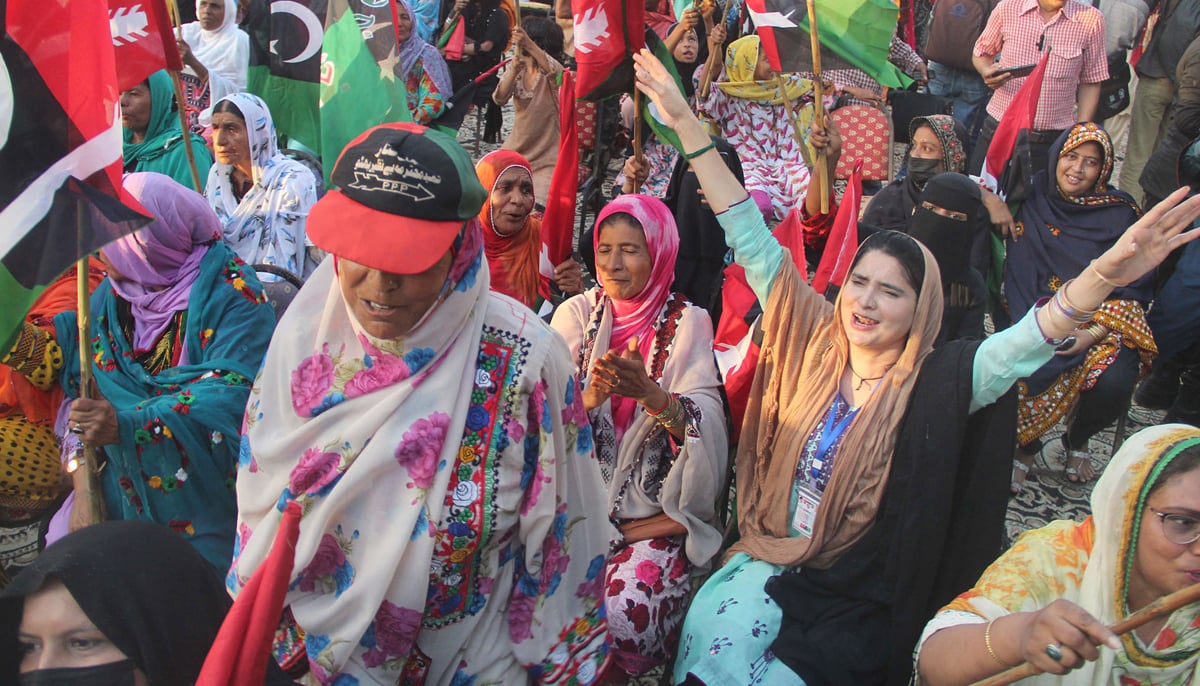
In Karachi, Hyderabad and other urban centres religious parties led by JI and Jamiat Ulema-e-Pakistan (JUP) dominated politics. PPP in the 1970 elections won only two NA seats but eight MPA seats from Karachi.
But in the mid-80s, the two religious parties suffered setbacks — first in 1985 non-party elections, where some of their stalwarts lost against Independent candidates. But it was in 1987 when a new party Muhajir Qaumi Movement (MQM) swept 1987 local bodies’ polls followed by 1988 general elections and religious parties were completely wiped out. The MQM looked back and dominated the politics of urban Sindh till August 22, 2016, despite some upsets in between.
With the rise of MQM as the sole representative of urban Sindh, it was PPP that apparently came out as the representative of rural Sindh, though its leadership always claimed it stood for national unity. The two could have changed the political discourse but unfortunately, the division further widened.
Despite MQM’s clear domination in urban Sindh, PPP always remained as a challenger while JI bounced back in 2001 when MQM boycotted local bodies elections and won LB polls and made inroads into local bodies’ politics through a vibrant mayor, Naimatullah Khan, who through his performance brought JI back in the mainstream. In 2005, MQM came back in business and it regained local bodies’ power this time through Mustafa Kamal as administrator Karachi succeeded in minimising the dent caused due to MQM’s violent politics.
The vacuum was created by MQM after August 22, 2016, when the MQM founder, Altaf Hussain, committed a fatal political error by raising an anti-Pakistan slogan and the party faced an unofficial ban and a massive crackdown. The party ultimately split up, creating an opening for PTI, which captured their vote bank.
A major chunk of Urdu-speaking voters supported Tehreek-e-Labbaik Pakistan (TLP).
But, MQM still had a chance when it won local bodies elections and Waseem Akhtar was elected as mayor. The party wasted the golden chance, letting PTI, JI, TLP and PPP rise to the occasion.
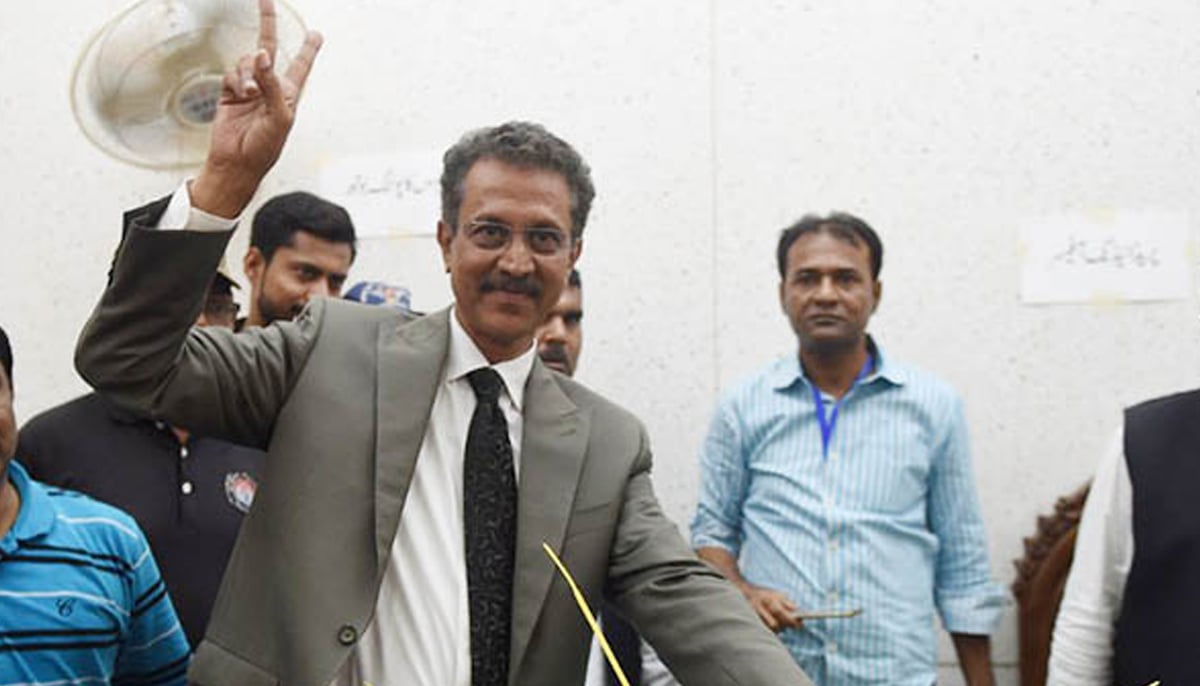
Now, the big question is: Can Murtaza Wahab as mayor of Karachi, with the complete support of the Sindh government and even the federal government, make a difference through meaningful developments and change the city’s look? Can he defeat the apparently invincible water tanker, land and myriads of other mafias?
On the other hand, the provincial government and assembly empower the mayor and local governments. Perhaps it must be asking too much but can Murtaza succeed in pursuing the Sindh government to empower local governments as per the 18th amendment? He could win the hearts of Karachi's people above political lines if he does it.
Politically, it’s a challenge for other parties like JI, MQM-P and PTI to stage a comeback. All three still have a vote bank and if PPP failed to perform any of the three, particularly JI and MQM, could bounce back.
Karachi is still thirsty for someone to solve its drainage issues, clean water, good transport, good roads, improvement in health sectors particularly good government hospitals beside other civic amenities.
Thus, it’s going to be a very bumpy ride for the mayor-elect, Murtaza Wahab.
Mazhar Abbas is a columnist and analyst of Geo News, The News and Jang. He tweets @MazharAbbasGEO.



